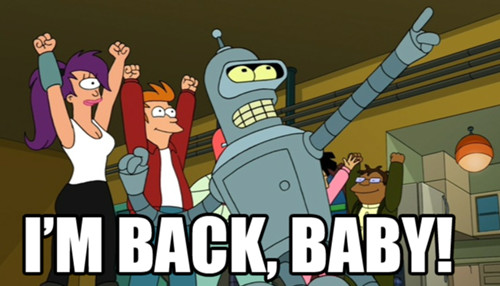Home » Lifespan Faith Development » Tools for the Journey
Tools for the Journey
Insight, Inspiration, and Resources for Daily Life
- Rest is Resistanceby Meredith Plummer
Rest

Picture by Ketut Subiyanto. I first encountered The Nap Ministry sometime around 2018. As an overtaxed mother, wife, and worker Tricia Hersey’s message of ‘Rest is Resistance’ resonated deeply with me. When Hersey’s book of the same name, Rest is Resistance: A Manifesto, was released I knew I had to read it for this sabbatical. Here are some of the key quotes and questions I took from my reading…
Quotes
- Survival is not the end goal for liberation. We must thrive we must rest. p. 5
- Our bodies are a site of liberation. p. 7
- Grind culture is a collaboration between white supremacy and capitalism. p. 24
- If we are not tapped into the truth of our divinity, there is the possibility of continued brainwashing. p. 15
- Nothing we accomplish in life is totally free of the influence of spirit and community. We do nothing alone. p. 18
- The removal of physical education, recess, and nap time from public schools is more evidence of a culture unconcerned with space, connection, and slowing down. This ongoing socialization and manipulation by the systems then become internalized and we become agents of grind culture. p. 23
- You are worthy of rest. We don’t have to earn rest… the more we think of rest as a luxury, the more we buy into the systemic lies of grind culture. p. 28
- Where spirit is, healing can happen. p. 33
- We don’t have to have a complete answer to everything right now. We don’t have to know everything. We don’t have to be everything. We don’t have to do everything. p. 59
- Stay in the space of knowing that you are not a failure, inadequate or unworthy because you are tired and want to rest. p. 67
- When we don’t take our own rest while holding space for others around us to rest, we are functioning like the systems we want to gain freedom from. p. 76
- There is no system in our culture that supports and makes space for us to rest. p. 94
- Rest is somatic work – connecting your body and mind. p. 120
- It can be easier to believe resting is simply about retiring to your bed when you are tired instead of beginning the messy process of deconstructing your own beliefs and behaviors that are aligned with white supremacy and capitalism. p. 122
- Rest is not a state of inactivity or waste of time. Rest is a generative state. p. 153
- You have permission to experiment. p. 173
- Rest on a somatic level is a small resurrection. p. 182
- We imagine by being in community. We imagine by receiving and offering radical care. We imagine by embracing and running toward our interconnectedness. p. 188
Questions
- Do you know you are divine? Do the people around you know they are divine? How does Unitarian Universalism convince people of their inherent worth and divinity when so many of our members were raised Christian, whose doctrine of original sin is in direct opposition to this belief?
- What would church look like if we centered space, connection, and slowing down? What would your life look like if church centered rest?
- What damage are we inflicting on our children when we don’t give them or their caregivers space and time to rest, when we overschedule and overdemand? Much has been said recently about Gen Alpha and the failings of Millennial parents. But, what if Millennial parents aren’t failing? What if we are just struggling to survive in a system designed for urgency and disconnection?
- How have you internalized grind culture? When was the last time you rested? Gave yourself permission to experiment? When was the last time you gave and received radical care from your communities?
- What does rest look like to you? When will you rest next?
That’s all for this month. Join me in August as I share my wonderings from Sonya Renee Taylor’s book The Body is Not An Apology (my second favorite Sabbatical read). Until then, rest.
- Back from Sabbaticalby Meredith Plummer
Guess What…

Hi! Hello! How have you been? I know… you can’t answer that question. Comments are turned off. But, still, for your own sake, I’d like you to answer it anyway. How have you been?
If you find you aren’t doing too well, then I encourage you to stop what you are doing right now. Put down your mobile device, or move away from your computer, and take 5 minutes for whatever you want. Rest your eyes, stretch your body, reach out to a friend, sit in silence – listen to your body. Everything else will still be here when you are done. (Breath)
Now, if you wish to continue, then let me answer that question – I’m really f****** good. I don’t know if I ever mentioned this to you before, but the Pandemic, and all the years that followed, broke me. They broke me in more ways than I thought possible. And, honestly, before my sabbatical, I was starting to wonder if I’d ever recover, despite all my best effort. But, sabbatical, it was like magic. This time away – studying, resting, connecting with colleagues – was more restorative than I dreamed it would be. Perhaps, one day, I will tell you the full story of how the pandemic broke me, of all that I did to repair myself, and how Sabbatical was the missing key to my continued recovery. But, I’m not quite ready to tell that story yet. So, instead, I’m going to share some key quotes and questions I gathered during my sabbatical.
To begin, I want to share a few quotes and questions from the book The Good Enough Job by Simone Stolzoff. This is the first book I read while on sabbatical. If you are struggling with work-life balance, burnout, or the ravages of classism, then I’d highly recommend this book to you…
Quotes
- For White-Collar professionals, jobs have become akin to a religious identity; in addition to a paycheck, they provide meaning, community, and a sense of purpose. p. xii
- Most religious traditions actively separate divinity from productivity – as either a separation of time, as in the Jewish tradition of Shabbat; a separation of space, as in a monastery isolated rom the rest of society; or a separation of behavior, as in the Islamic call to prayer, which halts all other activities five times a day. p. 36
- Promoting the message that a profession is inherently righteous allows people in positions of power to characterize injustices as isolated incidents rather than systemic failures – if they’re even discussed at all. p. 51
- But it isn’t just our country or employer that imposes this value system on us. Using productivity to measure worth is a standard we also impose on ourselves. And in the process, many Americans have internalized the values of our dominant economic system: Capitalism. p. 71
- Koretz recommends building infrastructure around sacred time as one might build infrastructure around sacred space like a temple, mosque, or church. p. 76
- Play is a natural antidote to workism. p. 77
- According to a report from the Economic Policy Institute, the lowest-earning quintile of Americans worked nearly 25% more hours in 2016 than they did in 1979… Overwork is not simply a matter of the number of hours worked, but also the intensity and unpredictability of those hours. p. 116
- Workplace communication apps keep knowledge workers perpetually half connected, in a state reminiscent of sharks sleeping with one eye open. p. 142
- Developing a healthier relationship to work starts with defining what you want that relationship to be. If not, your employer will happily define the relationship for you. p. 155
- Furthermore, overwork is a systemic issue – one that is the result of economic, political, and cultural factors – and thus there are limits to individual interventions. All too often, the ones that carve out and protect space for our nonwork selves falls on workers. Common anti-burnout advice like “set a boundary,” or “practice self-care” crumbles without institutional support behind it. p. 182
- To decouple our human needs from our employment status is to declare that each of us has worth whether or not we have a full-time job. p. 189
- A 2021 survey from the Society for Human Resource Management found that 41% of Americans feel burned out. p. 190
- I found that those with the healthiest relationship to their work had one thing in common: They all had a strong sense of who they were when they weren’t working. p. 196
Questions
- How do Unitarian Universalists promote a separation between divinity and productivity? How do Unitarian Universalists sanctify a connection between divinity and productivity?
- As a society, we regularly recognize people’s labor / contributions / output / productivity. But, when do we recognize people’s “ever-green” characteristics (i.e. When do we recognize people because they are good listeners, or gregarious, or [fill in positive adjective here])?
- What does a liberatory Unitarian Universalism look like when our current culture is steeped in workism? What feels liberatory to you?
- How would you like to define your relationship to work?
- Who are you outside of your work?
That’s all I got for you now. Check back in a few weeks where I will share quotes and questions from Tricia Hersey’s groundbreaking work Rest is Resistance.
- Sabbatical Newsby Meredith Plummer
Not Another Announcement Post
Hello Beloveds,
I am sorry, but yes, this is another announcement post. And, here is the announcement – starting in January I will be on sabbatical. This means I will not be tending to my regular duties at First Unitarian Church, and so this blog will go dark for several months. What will I be doing on Sabbatical? When will I be back? Well, you can get the answers to those questions and more by viewing the “5 FAQs About Meredith’s Sabbatical” slideshow below (a plain text version of this slideshow can be found here).
In faith and service,
– Meredith
